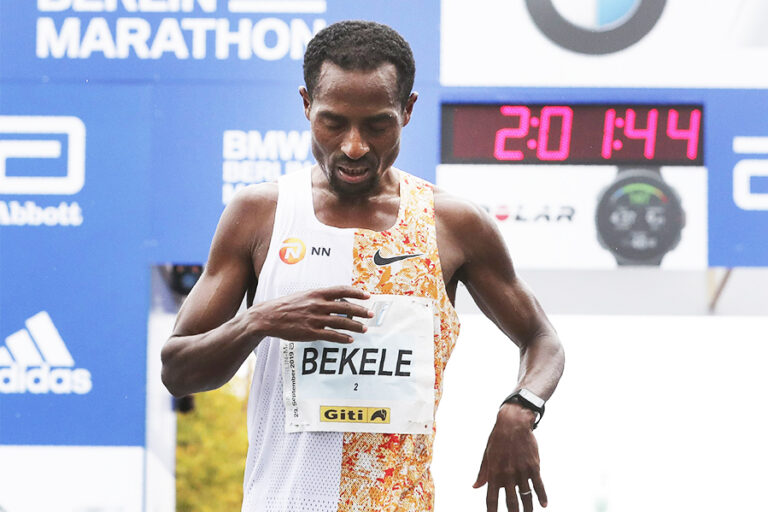Fasil Ketema is just a point short of its first ever Ethiopian Premier League title. Back in top form Mujib Kasim is breathing hot behind leading top scorer Ethiopia Bunna’s Abubaker Naser.
“The Emperors” 2-1 victory over bottom of the table Adama Ketema on Wednesday extended their lead at the top to 15 points and their nearest pursuers Ethiopia Bunna couldn’t get the win they needed to keep the title race alive.
With four matches still to play Seyoum Kebede’s side is to bring the BetKing Championship trophy to Gondor for the very first time in the club’s history. Only one defeat and four draws in twenty matches, Fasil deservedly to take aloft the coveted championship trophy as the most consistent side in the 2021 league season. Scoring 35 goals means the side is next only to Ethiopia Bunna with 36 while conceding only twelve that is next to Hadiya-Hossana.
In the meantime Fasil’s goal machine Mujib Kasim recovered in time to catch up with runaway leading top scorer Abubaker Naser. Mujib scored in the past four consecutive matches thus his goal tally reached 19 that is just three short of Abubaker. Twelve goals into his name Giorgis marksman Getaneh Kebede is trailing third from afar.
A goal less draw with AbaJifar on Wednesday Ethiopia Bunna stayed second with 34 points from 19 matches, while St George slipped down to fourth after the shocking 2-1 defeat at the hands of Wolayta-Dicha.
Fasil Ketema just short of a point to snatch BetKing EPL trophy
Ethiopian Marathon trials to be held in Ethiopia, Kenenisa might not participate due to injury concern
Plans for the Ethiopian Athletics Federation to hold its Olympic marathon trials in Geneva, Switzerland, this weekend have been scrapped. The race, which had originally been scheduled for Sunday, May 2, will now be held on Saturday, May 1, in Sebeta, Ethiopia which sits at 7,730 feet of elevation roughly 15 miles southwest of the Ethiopian capital of Addis Ababa. The format will remain the same, with the top three finishers earning spots on the Ethiopian team for the Olympic marathon in Sapporo this summer, though the distance will be 35 kilometers (21.7 miles) as opposed to a full marathon.
Haji Adilo, coach of the Ethiopian Olympic marathon team, told LetsRun the trials were moved from Geneva due to COVID concerns. Many top Ethiopian athletes have been based in hotels in Addis Ababa since January and Adilo said there was concern that traveling to Switzerland could result in a positive test ruling an athlete out of the trials at the last minute.
Despite moving the trials to Ethiopia making the race more accessible to the country’s aspiring Olympians Adilo said the races will remain small. Adilo said the women’s race will consist of just six athletes: Roza Dereje, Birhane Dibaba, Degitu Azimeraw, Zeineba Yimer, Tigist Girma, and Ashete Bekere.
The men’s race will be slightly larger, in part due to injury concerns surrounding three of Ethiopia’s biggest stars: Kenenisa Bekele (three-time Olympic gold medalist, second-fastest marathon ever), Birhanu Legese (two-time Tokyo champ, 2:02:48 pb), and Mosinet Geremew (World Championship silver medalist, 2:02:55 pb). It’s possible all three of them don’t run the race and with only three other athletes (Sisay Lemma, Lelisa Desisa, and Shura Kitata) in the field, it would have made little sense to hold a three-person trials if Bekele, Legese, and Geremew end up withdrawing. So the field has expanded, with Adilo saying Mule Wasihun (2:03:16 pb), Getaneh Molla (2:03:34 pb, 2019 Dubai champ), and Kinde Atanaw (2:03:51 pb, 2019 Valencia champ) also expected to compete.
St George, Ethiopia Bunna suspend senior players
Though it is not known that both teams have an established policies and procedures related to players’ disciplinary actions, record champions St George and popular side Ethiopia Bunna handed a serious suspension to their senior players despite the season coming to end in two weeks’ time. To the amazement of football fans each side suspended four senior players having huge influence in the outcome.
Four frustrating seasons in a row without a trophy St George club officials appeared to reach their limits on Monday handing a suspension notice to the club’s heavyweights. National team skipper and twice Ethiopian Premier League player of the year Getaneh Kebede, national team central defender and second skipper Aschalew Tamene, upcoming striker Gadissa Mebrate and die-hard midfielder Mulualem Mesfin are the players subjected for suspension until the end of the season.
Though the statement from the club states that these players are accused of a number of disciplinary actions including the accusation of a sportive behavior while the team was in Baherdar, many suggest that the move is more of shifting away the blame from the club’s administration and Board of Directors. “The move is simply to lure away supporters against the players rather than the Board. Thus soon the ban will be lifted” a source close to the club suggested. “The action taken after the title race ended therefore it means nothing except for the club officials” he added.
Bunna’s much talked about playmaker who signed contract extension recently Tafesse Solomon, striker Mikias Mekonen, midfielders Addis Fisha and Haile G/Tensay are the players who got the suspension. Why the suspension turned out this time is what takes many by surprise. Although the statement states that committee members including the Physio Yishak were involved in taking the motion, many are not convinced about the move. “The players are sacrificed for the team’s failure to win the title” one football fan remarked.
Tokyo 2020: Tegla Loroupe’s concerns over Olympic Refugee Team
Tegla Loroupe, the Chef de Mission for the Olympic Refugee Team, says athletes who have decided to stay in Europe rather than return to the training camp in Kenya ‘cannot’ compete in Tokyo this year.
However the athletes from South Sudan are still hopeful a solution can be found to enable them to run at the delayed Games.
Former world marathon record holder Loroupe is also concerned about the image of the project after the athletes decided to start afresh in Europe.
Kenya’s Loroupe will again take charge of the refugee team made up of competitors from around the globe set to take part in various sports in Tokyo after she led a similar team at the 2016 Games.
“The athletes who stayed in Europe, we feel so bad,” Loroupe told BBC Sport Africa.
“They cannot go [to Tokyo2020] because if you give them the opportunity to run in the Olympics, then you are encouraging more people to do wrong things.”
“What they did has blocked other athletes from getting visas, because now nobody trusts the other refugees. They do not see that they leave a very bad image. They kill the trust.”
At the Rio Olympics the refugee team consisted of 10 athletes (five originally from South Sudan, one from Ethiopia and two each from DR Congo and Syria) competing in athletics, judo and swimming.
Loroupe says endorsing athletes who have left Kenya for Europe by selecting them the refugee team going to Tokyo could also damage the future of the project, especially for African competitors.
“We could lose some of the partners, which is not good for the project and the upcoming athletes,” she pointed out.
“The government and embassies are also partners, it’s like you are just playing around with the support of the nation.”
Sponsors of the refugee team project include the International Olympic Committee, the United Nations Human Rights Commission (UNHCR) and the governments of France, Kenya and Qatar.
Still hopeful
One of the athletes who has chosen a fresh start is 800 metre runner Gai Nyang and he is still hopeful of earning a place on the Refugee Team for Tokyo.
“I want a solution to the impasse that works for the refugees living there, the Kenyan people and the Kenyan government,” he told BBC Sport Africa.
“I can run 800 metres in 1.48 now, which is just three seconds short of world-class. The athletes in the refugee team camp are never told they have to make an official (qualifying) time, just to ‘go faster’ to have a chance of winning a Games slot.
“The dream of all the athletes in the refugee team is not just to go to the Olympics, but to qualify through achieving the standards demanded of the regular athletes. Then to have a life beyond that.”
The 29-year-old explained that he decided to stay in Germany after reading of compatriots being kidnapped in the Kenyan capital Nairobi and some of them being forcibly repatriated to South Sudan.
Loroupe however does not believe that the South Sudanese athletes had anything to fear from staying at the Ngong training camp near Nairobi or even from returning home.
Nyang says he will “always be grateful to Kenya for hosting me” but wants greater awareness that the status of refugees is insecure in the country he attempted to make his home.
“Being a refugee means different things in different countries and in Kenya there is no ‘contract’ that says once you have been there for a certain amount of time you can become a citizen,” he pointed out.
“I hope to one day be a citizen of Germany, not always a refugee somewhere.
“Here in Germany I can speak freely about the president of South Sudan, but I did not feel safe to do so in Kenya. I took the decision to save my own life before it was too late.”
Other athletes scouted by Loroupe from the huge Kakuma refugee camp near her home on the border with South Sudan have left for Switzerland and the United Kingdom respectively.
The decision by the athletes to stay away from Kenya has left Loroupe disappointed as she says her proudest achievement was not as an athlete but being “one of the first in sport to recognise the plight of refugees.”
She also believes that the refugee team project can “produce leaders” for countries troubled by conflict.
Despite these athletes having decided not to return to Kenya those who have remained still have a chance of making Loroupe’s team heading to Tokyo in July.
(BBC)





